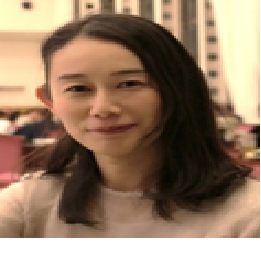Asia-Pacific Mental Health and Well-being Congress
THEME: "Future Directions: Pioneering Mental Health and Well-being Initiatives"
 27-29 Oct 2025
27-29 Oct 2025  Bali, Indonesia
Bali, Indonesia THEME: "Future Directions: Pioneering Mental Health and Well-being Initiatives"
 27-29 Oct 2025
27-29 Oct 2025  Bali, Indonesia
Bali, Indonesia 
The University of Tokyo, Japan
Title: Restoring Social Connections for Isolated Youth: The Role of Community-Based Support and Narrative Practices in Japan
Hanae Ono is an Associate Professor
at the Professional University of Arts, Culture and Tourism and a Senior
Research Fellow at RCAST, the University of Tokyo. She specializes in arts
education programs and cultural policy, holding a Ph.D. (Academic). Her
research focuses on accessibility in theater and the development of competency
indicators for grassroots practitioners working on social inclusion and
well-being.
In Japan, the number of socially isolated youth, including those experiencing hikikomori (prolonged social withdrawal), has been increasing. According to the Ministry of Internal Affairs and Communications (2023), approximately 1.46 million people nationwide are in a state of hikikomori, many of whom lack access to adequate support. Contributing factors include school absenteeism, family issues, employment difficulties, and mental health challenges. Public support alone is often insufficient, and stigma creates additional barriers to help-seeking. In response, the Japanese government has promoted a “Community-Based Society” initiative. However, formal support systems alone may be insufficient to build trust, and increasing attention is being paid to informal, relationship-based support rooted in local communities. This study examines how such informal support contributes to social reconnection and well-being, focusing on a community organization called the Grassroots Mutual Support Project (Kusanone Sasaeai Project) in Nagoya. The organization emphasizes “relationships over expertise” and creates spaces for youth to reconnect with society through flexible and everyday interactions. A key initiative is the Nagoya City Comprehensive Consultation Center for Children and Youth, where “Yorisoi Supporters” — local volunteers — build trust not through professional counseling, but through shared daily experiences. These interactions allow young people to feel seen, accepted, and gradually empowered to take steps toward reintegration. A crucial element of this support model is narrative practice. While Marshall Ganz’s concept of “public narrative,” developed in the field of community organizing, encourages individuals to share their personal stories to inspire collective action, the Japanese approach centers on empathetic listening and adaptive storytelling. In this model, stories are reshaped in response to the listener, fostering empathy and connection. This narrative practice makes support more accessible and inclusive, helping to create trusting and sustainable environments for social inclusion.